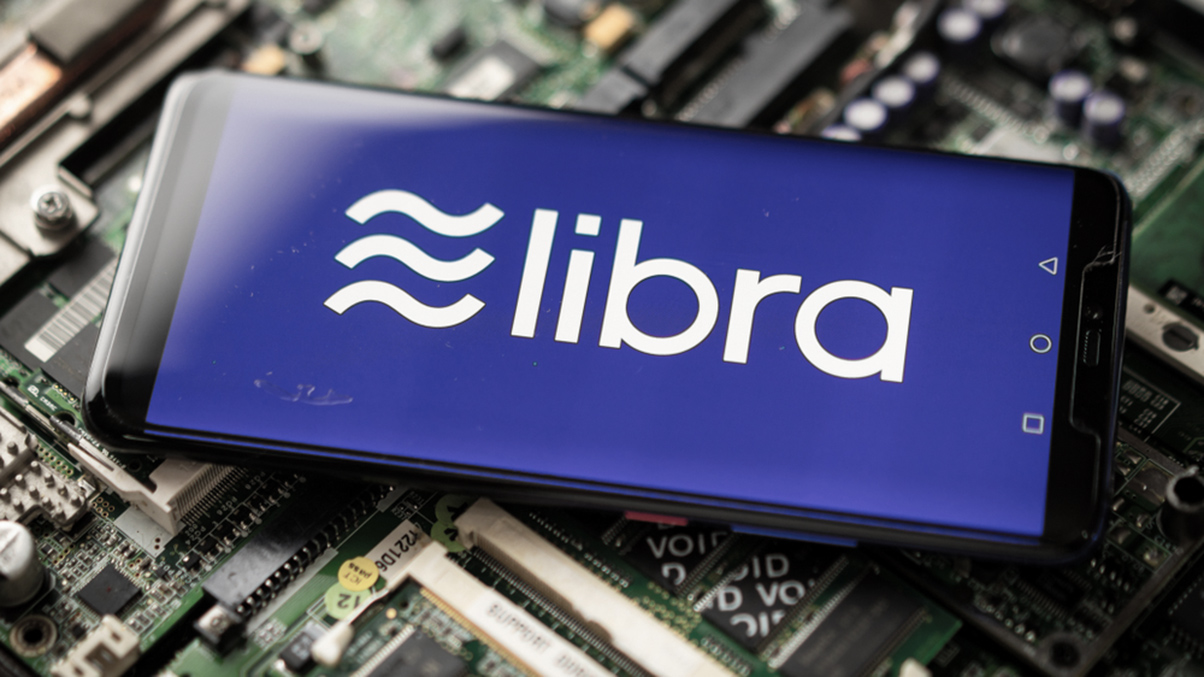In this article, Marc Jones explores the legal status of cryptocurrencies in the UK, in light of the decision of Robertson v Persons Unknown (unreported), 16 July 2019, (Commercial Court), in which he represented the claimant. Marc also examines the City of London Law Society’s submissions to the UK Jurisdiction Taskforce on cryptoassets, distributed ledger technology and smart contracts, and touches on the legal status of cryptocurrencies in some other jurisdictions.
In the ten years since Bitcoin was born, there has been a proliferation of cryptocurrencies. Although the area is plagued with a lack of accepted definitions, in this article, “cryptocurrency” is used in the sense of the Financial Conduct Authority’s (FCA) category of “exchange token”, as distinct from “security tokens” and “utility tokens” (see Legal update, FCA policy statement and final guidance on cryptoassets).
In broad terms, the FCA has created a framework by categorising cryptoassets based on their intrinsic structure, as well as their designed use. On its webpage on cryptoassets, the FCA explains that cryptocurrencies such as Bitcoin are classified as unregulated tokens, which: “… are usually decentralised and designed to be used primarily as a medium of exchange. We sometimes refer to them as exchange tokens and they do not provide the types of rights or access provided by security or utility tokens, but are used as a means of exchange or for investment.”
More broadly, cryptocurrencies are considered to be “virtual assets”, as defined by the Financial Action Task Force (FATF) in their report Guidance for a risk based approach to virtual assets and virtual asset providers. Unsurprisingly perhaps, related regulation has been introduced at a national level; in some jurisdictions, at least (see Legal status of cryptocurrencies in other jurisdictions).
Various concerns have been raised at the supranational level about what these virtual assets mean for the global financial system and data protection authorities; Libra, for example, being the latest, and so far greatest, cryptobogeyman (see Legal update, Data protection authorities call for openness on Libra cryptocurrency).
Legal status of cryptocurrencies in the UK
What is surprising is that, despite the speed with which virtual assets have infiltrated the financial system (for example, there are already futures and exchange-traded notes in Bitcoin), the fact is that in England, and in many other jurisdictions, quite what a cryptocurrency is in legal terms (a right, property or something else altogether) remains unclear and unresolved.
Imagine a scenario where shares in a public company are regulated by a legal system in terms of how they can be promoted to the public; what information must be provided; to whom they can be promoted; in which jurisdictions, and so on. But the same legal system provides no answer as to how legal title in a share passes; whether and how security can be given over a share; what happens to a share in the event its owner becomes insolvent; whether a share can be trust property; and whether a share can be subject to a proprietary freezing order in the hands of an alleged fraudster. That is pretty much where we currently find ourselves in English law in terms of cryptocurrencies.
The fundamental question of “what is a Bitcoin?” is far from new, and has been addressed recently both in the High Court and in the City of London Law Society’s (CLLS) submissions to the UK Jurisdiction Taskforce (UKJT) of the Law Tech Delivery Panel consultation in relation to cryptoassets, distributed ledger technology (DLT) and smart contracts (see Legal update, Consultation on cryptoassets, distributed ledger technology and smart contracts).
Robertson v Persons Unknown
In Robertson v Persons Unknown (unreported), 16 July 2019, (Commercial Court), the claimant sought:
- A freezing order against persons unknown in respect of 100 Bitcoin.
- An asset preservation order over 80 of those Bitcoin that had been transferred to a wallet held at a leading crypto-exchange.
- A Bankers Trust order to reveal the identity of that wallet holder.
The claimant was the victim of a spear phishing attack which targeted the email account of a tech start-up that he had invested in using Bitcoin. As a result, the claimant transferred 100 Bitcoin to the fraudster’s wallet, following which 80 of those Bitcoin were transferred by the fraudster to the wallet at the crypto-exchange. (The other 20 were sent elsewhere.)
At the first ex parte hearing, Moulder J was not prepared to proceed on the basis that the unidentified holder of the crypto-exchange wallet was the fraudster or even part of the fraud. As such, she was not prepared to make a freezing order against the unidentified wallet holder. Moulder J took the view that the crypto-exchange wallet holder could be a perfectly innocent third party.
However, Moulder J did entertain the claimant’s argument that he had a proprietary claim over the 80 Bitcoin, and readily proceeded on the basis that Bitcoin could be personal property. That is far from uncontroversial because, as the CLLS submissions conclude, cryptocurrencies are neither choses in possession (they are not physical things) nor choses in action (they confer no rights against another person), and they should not be shoe-horned into either category. So, what are they?
For the purpose of the proprietary injunction (asset preservation order), Moulder J identified a key issue as being whether legal title remained with the claimant. She noted: “So if this turns out to be an effective transfer of title because it is a personal – an item of personal property with a right of possession, it could have been transferred.”
The judge referred to the conclusion of the Financial Markets Law Committee (FMLC), in its report Issues of Legal Uncertainty Arising in the Context of Virtual Currencies (July 2016), that cryptocurrencies (the FMLC used the term “virtual coins”) may be conveniently understood as a kind of hybrid virtual chose in possession. If that were right, then, as Moulder J observed, the claimant would not have a better title than any recipient of the 80 Bitcoin if the recipient were a bona fide purchaser for value. Equally, sale of goods legislation provides other defences that might enable a recipient of cryptocurrencies to defeat a proprietary claim, but only if cryptocurrencies are treated as choses in possession.
At this point in the hearing, the court skirted but did not pursue possibly the most difficult issue that could arise in claims involving cryptocurrencies: what is the law governing the proprietary aspects of dealing with cryptocurrencies? The CLLS submissions to the UKJT note that “We have found this one of the most difficult questions posed”. (For more information, see CLLS’s submissions to the UKJT on cryptoassets, DLT and smart contracts, below.)
The claimant submitted that Bitcoin are not choses in possession and that, on the basis of Armstrong DLW GmbH v Winnington Networks Ltd [2012] EWHC 10 (Ch), for the purpose of advancing a proprietary restitutionary claim and obtaining an interlocutory asset preservation order, it did not matter whether the court treated them as choses in action or some form of other intangible property. Ultimately the court proceeded on that basis. That is also essentially where the CLLS arrived in considering the issue.
CLLS’s submissions to the UKJT on cryptoassets, DLT and smart contracts
The CLLS submissions to the UKJT provide an excellent overview of some of the key problems in this area. Significantly, the CLLS concludes that cryptocurrencies are neither choses in possession nor choses in action, but some other intangible asset: “Neither bitcoin nor ether (or any other similar, exchange token of which we are aware) is a chose in possession. It is intangible and not capable of physical possession. We do not consider that the concept of possession, grounded in physical tangible property, should be changed … Nor are exchange tokens which are recorded on a blockchain or other distributed ledger a chose in action within the original understanding of the term. The reason is that they are not a claim on any person that can be enforced by action. This arises out of the decentralised nature of the blockchain or distributed ledger.”
This would broadly reflect the position in criminal law, which already appears able to deal with cryptocurrencies as a result of the broad definition of “property” in section 4(1) of the Theft Act 1968 as including “money and all other property, real or personal, including things in action and other intangible property”.
The preferred solution of the CLLS is for the Supreme Court to recognise true cryptocurrencies as “other intangible assets”: “If the Supreme Court were to hold in the near future that exchange tokens recorded on a blockchain or distributed ledger were not property, then we would favour targeted legislation to deem them personal property as is the case with patents.”
It is unclear what “the near future” means, but it is obviously unsatisfactory that investors, or insolvency practitioners, trustees and so on, should have to wait for a suitable dispute to work its way to the Supreme Court before the fundamental legal status of cryptocurrencies is clarified.
Legal status of cryptocurrencies in other jurisdictions
Other jurisdictions, such as Switzerland, Singapore and Liechtenstein, are taking a more proactive approach to clarifying the legal status of cryptocurrencies. For example, in October 2019, Liechtenstein passed the Tokens and TT Service Providers Law (aka the Liechtenstein Blockchain Act), which will come into force in January 2020. This is a fascinating piece of legislation which is designed to provide a comprehensive legal framework for crypto and blockchain technology, bringing clarity to the fundamental issues that the UK Parliament or the English courts, in an appropriate case, should urgently address.
This article was first published on the Thomson Reuters Practical Law website on 31 October 2019. Please click here to see the full article
You can find further information regarding our expertise, experience and team on our Competition Litigation and Cybersecurity and Incident Response pages.
If you require assistance from our team, please contact us or alternatively request a call back from one of our lawyers by submitting this form.
Subscribe – In order to receive our news straight to your inbox, subscribe here. Our newsletters are sent no more than once a month.







